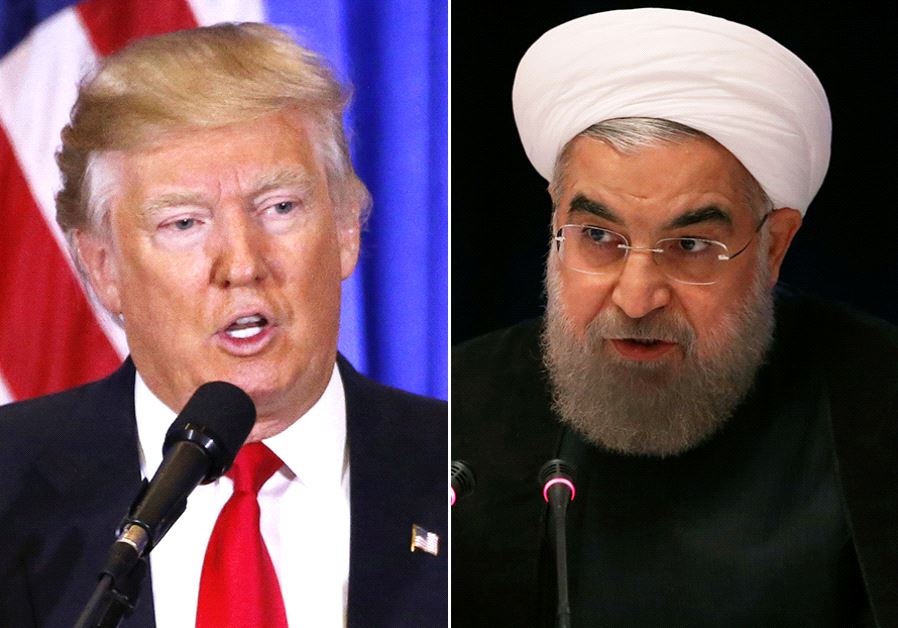
- ARAB NEWS
- 18 Jul 2025

Global leaders will next week gather at the UN headquarters in New York to discuss the most crucial issues facing the world. Members will also have the opportunity to introduce important resolutions to be voted on by the General Assembly and later forwarded to the UN Security Council in order to become official.
At the sixth plenary meeting on Sept. 25, US President Donald Trump will address the General Assembly. Intriguingly, Iranian President Hassan Rouhani will also be addressing the General Assembly on the same day. One of the most important topics that the US should discuss is the role that the Islamic Republic is playing in the region and on the global stage.
When speaking about Tehran, the US president ought to focus on and emphasize two important points. The first is the nexus between the Joint Comprehensive Plan of Action (JCPOA), aka the nuclear deal, and Iran’s proxies, militias and terror groups.
Trump can emphasize the fact that the JCPOA was fundamentally flawed from the start and that is why any attempt to revive it would be fruitless. One of the major problems was that the negotiating team completely excluded those on Iran’s doorstep, formulating a policy set by governments thousands of miles away in an approach reminiscent of the bygone colonial era.
In addition, Iran’s funding of violent proxies, such as Hezbollah, Hamas and the Houthis, was entirely overlooked, which it never would have been had the region’s countries been at the negotiating table. In fact, the 2015 nuclear deal freed up extra funds that have flowed to these groups in ever greater volumes.
Trump should argue that the response to Iran’s belligerence cannot simply be further appeasement. That route has been tried and has failed.
Upon the JCPOA’s signing, former US President Barack Obama saidhe was “confident” that the deal would “meet the national security needs of the United States and our allies.” By this measure alone, Iran’s subsequent actions show that the JCPOA has demonstrably failed.
What were the results of the nuclear deal? A greater propensity for Houthi rocket launches at civilian targets in Saudi Arabia, the deployment of thousands of Hezbollah foot soldiers in Syria, and the regular bombardment of southern Israel by Iranian-funded Hamas rockets.
Trump can also point to the current situation in the Gulf, which has seen the Iranian regime actively escalate tensions. This includes the harassment of ships in the Strait of Hormuz, such as the seizing of the UK-flagged Stena Impero by the Islamic Revolutionary Guard Corps, and Iran’s wider efforts to blackmail European nations into keeping JCPOA funds flowing as the US sanctions continue to bite.
Thanks to the Iranian regime’s funding of violent extremists, Trump can demonstrate the fact that, since the implementation of the nuclear deal, the national security interests of the US’ allies in the region have far from improved.
The US president should also argue that the response to such belligerence cannot simply be further appeasement. That route has been tried and has failed. The international community can see first-hand the consequences this approach has had, with the Iranian-armed Houthis continuing to cause death and destruction in Yemen and Hezbollah likewise in Syria.
The second pillar of Trump’s speech ought to focus on seeking the assistance of Western allies, particularly the EU, in order to more effectively deter the Islamic Republic. The White House should be cognizant of the fact that it cannot counter Iran alone. The US can accomplish its objectives by illustrating that the security threat posed by the Iranian regime to both regional and international security is real and urgent, and attempting to revive the failed JCPOA is not the way to combat it.
This is a good time to seek the help of the EU because European governments have recently shown some signs that they are willing to take a tougher stance toward Tehran. This is due to the fact that the Iranian leaders are defying the EU’s appeals to stay in compliance with the terms of the JCPOA. The UK and Germany in June issued a joint statement warningIran to cooperate with the UN’s nuclear watchdog, the International Atomic Energy Agency, and to stick to its commitments under the nuclear deal. But Tehran has continued its nuclear defiance.
Domestic repression and hostage-taking are other issues that the US president can point to. Human rights violations are continuing to riseunder the so-called moderate President Rouhani and Tehran continues to arrest and harass foreign citizens. Iran is currently holding foreign hostages as pawns to extract economic concessions and obtain geopolitical and financial gains.
In conclusion, Trump must clearly illustrate the real and urgent threat Iran poses to both regional and international security. Washington should also seek the assistance of Western and regional allies in combating Iran’s threats and terror activities.